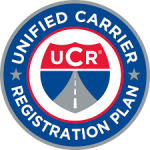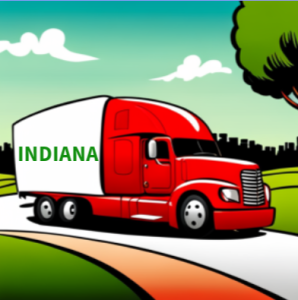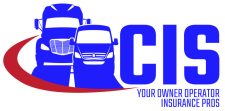Good news for Indiana Motor Carriers! FMCSA’s minimum Commercial Auto Liability Requirements still apply, but premiums are finally dropping now that GEICO has joined the market.
Indiana Commercial Truck Insurance Requirements for Motor Carriers still start with Federal Requirements set by FMCSA.
FMCSA is the Federal Motor Carrier Safety Administration which oversees the Department of Transportation.
Commercial trucks hauling freight for hire across state lines must first register with FMCSA.
Truckers operating Intrastate in Indiana are also required to register to get a Federal DOT number.
What Type of Insurance Does Illinois Require for Motor Carriers?
Commercial Auto Liability is the insurance you need if you’re a motor carrier, required by both the FMCSA and INDOT–the Indiana Department of Transportation.
What happens after you buy your Commercial Auto Liability Insurance?
Once you buy your insurance policy, the insurance company electronically sends proof directly to FMCSA for you.
This is called your BMC-91X Filing.
The MCS-90 is just the endorsement to your policy which guarantees the insurance to FMCSA.
At the same time your insurance provider will also send your Form E proof of insurance to INDOT.
Then FMCSA approves your MC, Motor Carrier operating authority.
Listen, it’s easy to make mistakes along the way, so we’ve put together a cheat sheet with clear Steps to Get Your Motor Carrier Authority.
Guys, if you do a little homework you can certainly do this on your own without paying a service!
Why is Commercial Truck Insurance so expensive in Indiana?
Insurance for trucking is a significant expense for new startup motor carriers in any state, and Indiana actually enjoys some of the best rates in the country.
Unfortunately, every state has their own historically poor underwriting results and high litigation costs which lead to lack of insurance providers everywhere.
Be sure to get some estimates from a transportation insurance specialist before you register for your DOT.
Insurance is likely to be one of your highest overhead costs as a Motor Carrier.
Is there a new Commercial Truck Insurance company in Indiana?
Yes! GEICO has entered the Hoosier marketplace!
This is very good news because they’ve been providing some very attractive premiums for both new venture truckers and established motor carriers.
We’re happy to team up with GEICO to bring more options to our guys!
You can learn more about it at Indiana GEICO Commercial Truck Insurance
What Insurance Limits does Indiana Require for Truckers?
Indiana Commercial Auto Liability rules for vehicles hauling freight for hire across state lines:
- $750,000 CSL minimum for Commercial Trucks hauling general freight
- $300,000 CSL minimum for Commercial Van and Sprinter Insurance
CSL = Combined Single Limit
So, What Is Commercial Auto Liability Insurance?
Commercial Auto Liability covers two key things: Bodily Injury and Property Damage to others.
Bodily Injury Liability helps if you’re responsible for an accident that hurts or kills someone. It can cover things like medical bills, rehab, long-term care, funeral costs, lost wages, and even pain and suffering.
Property Damage Liability kicks in if you damage someone else’s property. This could be repairs or replacements for their vehicle, building, or even a pet.
For commercial trucking, these coverages are usually bundled under “CSL” or Combined Single Limits.
Keep in mind, your policy will only pay up to the CSL limit you’ve chosen.
What Other Insurance Does a Motor Carrier Need?
While FMCSA and INDOT don’t require it, your brokers and customers will.
Motor Truck Cargo is Commercial Insurance that protects the freight you are hauling for brokers and customers.
The most common limit requested is $100,000, but your trucker pro agent should help you determine exactly what you need.
You can also learn more at Commercial Truck Cargo Insurance Explained.
What Insurance Covers your Truck?
Physical Damage Coverage is available on most Indiana Commercial Truck Insurance Policies including Progressive and GEICO.
Here’s how it works:
Collision Coverage: This kicks in if your truck is damaged in an accident. Whether you hit another vehicle, an object, or your truck overturns or rolls, collision coverage helps pay for repairs or even a replacement.
Comprehensive Coverage: This covers damage that’s not caused by a collision. Think theft, falling trees, wind, hail, or even hitting an animal—you’re covered.
Your Physical Damage insurance is based on either the Actual Cash Value (ACV) of your truck or the Stated Amount, which includes all permanently attached equipment.
Here’s some examples of permanently attached equipment to consider:
- Custom paint, decals and signage
- Electronics that have been bolted or mounted to your truck
- Coupling devices like 5th wheel receivers
- Equipment and accessories for vacuuming
- Mounted tool boxes, shelving and ladder racking
- Tarps, chains and binders
Worthwhile Coverage Options for Indiana Commercial Truck Insurance:
Uninsured or Underinsured (UM/UIM) This coverage has your back if you’re hit by a driver who doesn’t have enough insurance—or none at all. It helps cover medical bills, lost wages, and even pain and suffering if you or your passengers are injured in an accident. Keep in mind, this kicks in only if the other driver is at fault and doesn’t have enough liability coverage.
Medical Payments (MedPay) MedPay steps in to cover medical and even funeral expenses if you or your passengers are injured in a truck accident. It’s extra peace of mind when you need it most.
What makes a truck a Commercial Vehicle in Indiana?
The Indiana Commercial Vehicle Guidebook says that if you’re driving a vehicle hauling property with a combined Gross Vehicle Weight over 10,001 lbs, you’ll need a USDOT number.
There’s an exception–If you’ve got farm plates and you’re only hauling within the state, you’re off the hook.
This rule also applies to 1-ton duallys with trailers, which are often used for Hot Shot trucking when the combined weight goes over that 10,001 lbs mark.
Remember, Hot Shot Truck Insurance usually falls under the $750,000 limit requirement.
[Related Story – What is the Definition of a Commercial Vehicle]
Does Indiana have other requirements for Truckers?
Yes, once you have your DOT number and insurance in place, it’s time for your Indiana Motor Carrier Application called Form IOA-1.
Indiana is also part of the Unified Carrier Registration or UCR.
Unified Carrier Registration supports funding for state highway motor carrier registration and safety programs.
Interstate Motor Carriers are required to submit annual fees to the UCR.
The amount of your fee is based on how many trucks you have:
- Up to 2 trucks is $37 each and 3-5 trucks is $111 each
Note that UCR is clear that smaller units like Hot Shots, Cargo Vans and Sprinters are not necessarily exempt from this fee.
According to the UCR Handbook, page 30…
“Some motor carriers or freight forwarders may operate only vehicles that are not classified as commercial motor vehicles, typically because the vehicles are lighter or carry fewer passengers than vehicles included in the definition of the term commercial motor vehicle. Such a business must register for UCR because these entities have a federal MC number. Because the MC numbers are generated in the federal URS system, a USDOT number will also be issued, but it would ordinarily pay a UCR fee in the lowest bracket, because it operates no commercial motor vehicles.”
If these lightweight vehicles pull trailers in interstate commerce and the gross combination weight rating or gross combination weight is 10,001 or more, the entity will account for all of these commercial motor vehicles and pay the applicable fee.

Thinking about becoming a Motor Carrier but want to learn more first?
You’re Smart…
Head over to our CIS Trucking Insurance Blog—it’s packed with answers to questions you didn’t even know you had:)
When you’re ready, give us a call! We’re here to help you get started on the right foot.
CIS (330) 864-1511
We are CIS, and We Make Your Truck Insurance Easy!

Authors
Shelly Benisch, CIC, TRS started Commercial Insurance Solutions, Inc. (CIS) in 2002 and brings over 30 years of experience in Commercial Truck Insurance. As one of the top 25 Progressive Truck Insurance Agency Leaders in 2024, she helps Motor Carriers and Owner Operators across the country find affordable trucking insurance quotes with GEICO, Progressive and more. Shelly also writes a free Trucking Blog packed with all kinds of tips. Her team of Truck Insurance Experts have earned CIS consistent 5-star reviews and Progressive's Top 25 Truck Elite Status. For expert Commercial Truck Insurance advice, give Shelly a call at (330) 864-1511
CEO
#CISDoesThat Commercial Truck Insurance for owner operators and motor carriers.Christina Cummings, TRS certified, leads Commercial Insurance Solutions, Inc. (CIS) as Executive Director and true experienced advice on Commercial Truck Insurance. She secures the most affordable GEICO quotes and Progressive quotes...and more for small Motor Carriers and Owner Operators nationwide. She is your "go to" person at CIS for advice with underwriting questions, tips and networking opportunities for Small Truckers. Under her leadership CIS earned Progressive's Top 25 Truck Elite status in 2024 and consistent 5-Star Google reviews. She also co-authors the free CIS Commercial Truck Insurance Blog for small Motor Carriers and Owner Operators, sharing her bottom line tips on how to find more affordable Commercial Truck Insurance. Looking for expert trucking insurance advice–Christina is your go to leader at (330) 864-1511 #CISDoesThat

